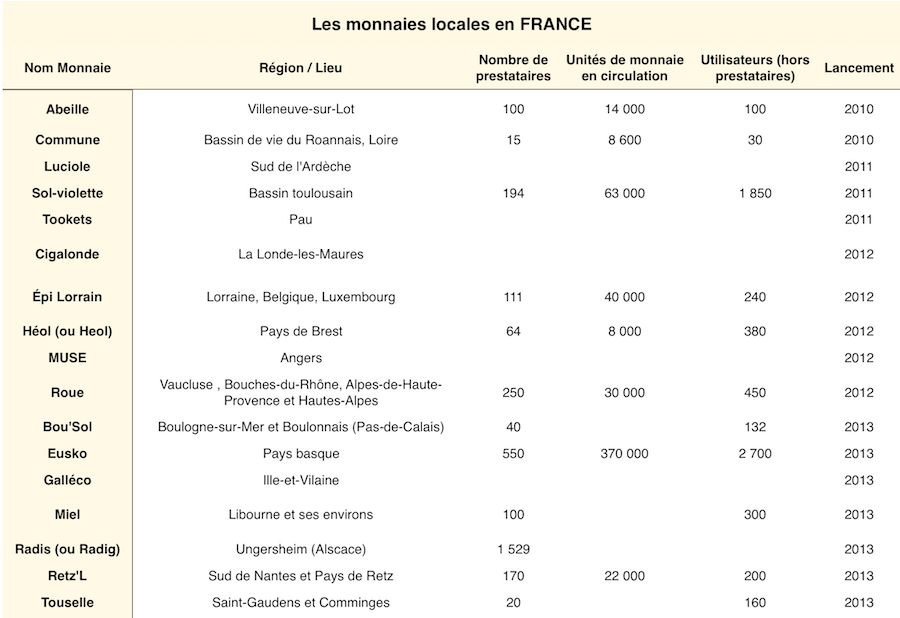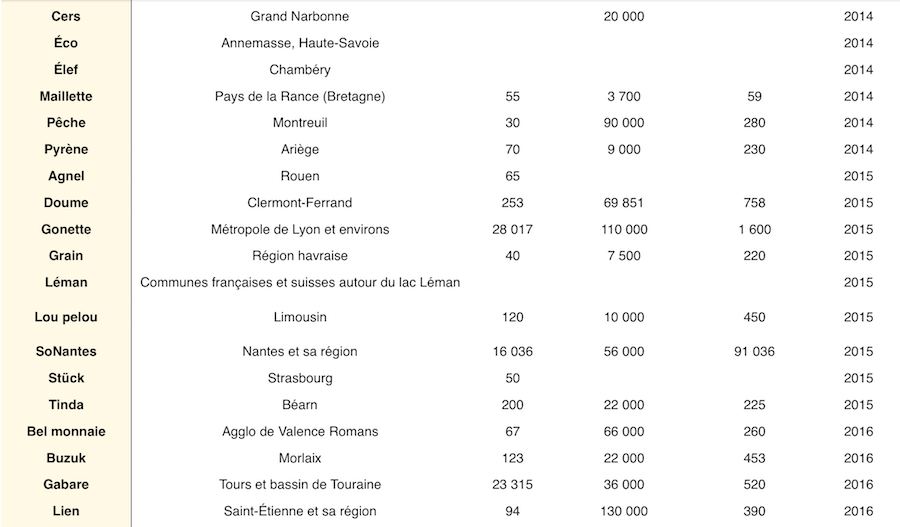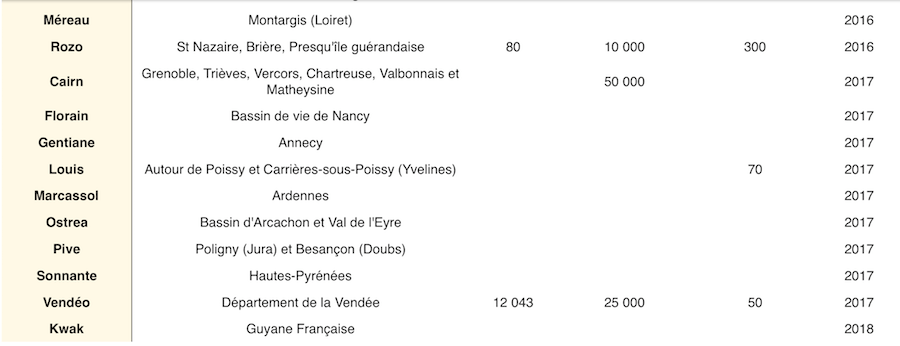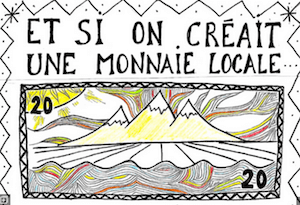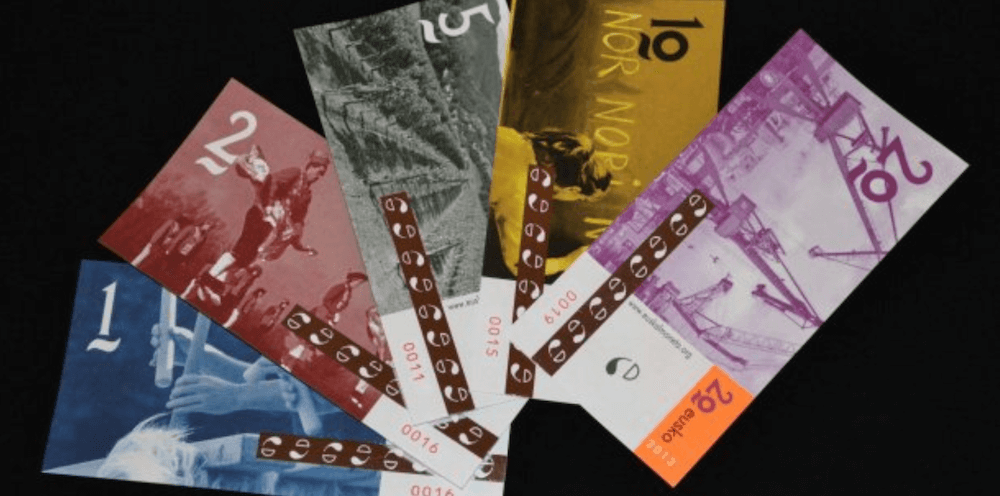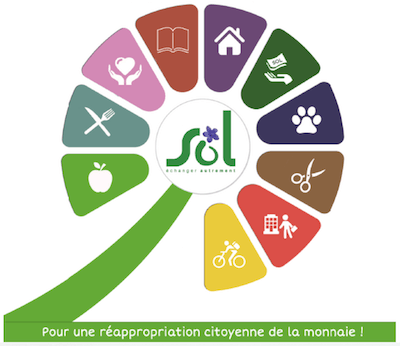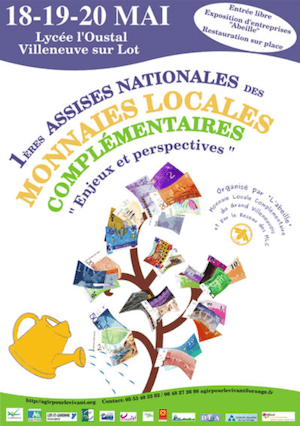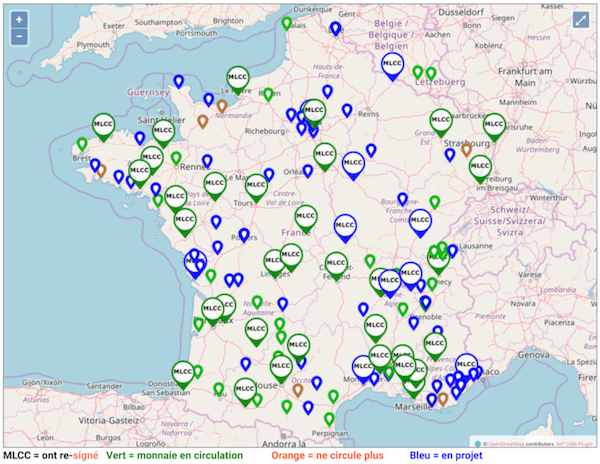The local currencies
In a parallel to the Euro and in other official currencies, there is other active money in the World (approximately 2 500 in 50 Countries).
In France several of these currencies exist for years and deserve to be mentioned or known.
Let us try to see what hides backs these local or complementary currencies - MLC
-
And if we created a local currency?
- By
- On Fri 15 june 2018
- In The local currencies
- 0 comments
To speak about local currency, it is to join a particular economic speech.
A local currency is, in economics, a not steady currency - but tolerated by a national government (which is not inevitably legal tender), and fate to be exchanged only in a restricted zone. The currencies of this type are also called complementary currencies because they do not have authority to substitute themselves for the official currency, the euro for example, but to circulate in parallel in this one. They take numerous forms, as material as virtual. -
Galléco
- By
- On Wed 12 sep 2018
- In The local currencies
- 0 comments
A new currency in Brittany
Galléco
Follow this interesting video concerning local currencies ...
-
The Sol-Violette
- By
- On Tue 03 jul 2018
- In The local currencies
- 0 comments
An exemple from Toulouse : THE SOL-VIOLETTE
In May, 2011, the Toulousian citizens saw being born a complementary and united currency in their city.
-
The opinion of certain users of the MLC
- By
- On Fri 15 june 2018
- In The local currencies
- 2 comments
The opinion of some speakers
-
General Informations on the MLC
- By
- On Fri 15 june 2018
- In The local currencies
- 0 comments
Inventory
Desertification of small shops, relocation, unemployment, or still loss of social links, exchanges it maybe a way to regain control the economy and to make it more human. Indeed, the local currency allows to build and to protect the integrity of a territory and to open to the others by exchanging its wealth without putting itself in danger. The purpose is not to compete with the national currency but to create a complementary currency which can mitigate the deficiencies of the current monetary system become uncontrollable, in this time of economic crises.
-
Advantages and inconveniences
- By
- On Fri 15 june 2018
- In The local currencies
- 0 comments
The complementary currencies can be divided into 2 groups
- Local currencies pressed on the official currency: 1 unity = 1 €. The national currency is often placed in an ethical bank.
- The complementary currencies not pressed on the national currency: their unity has no relationship with the official currency. The agreement of exchange of the properties or the existing services created the currency. This type of currency is not developed here.
A monetary unit is equal to an euro, which allows to use it more easily, without having to make of conversion. But that's it even which returns the interest difficult to understand.
Those who use it make it because it represents for them a way of revitalizing the local economy, because its use is restricted to a geographical zone. It allows the storekeepers who agree it to distance themselves from others and thus to attract more customers. -
List and position of local currencies in France
- By
- On Fri 15 june 2018
- In The local currencies
- 0 comments
List and geographical setting-up of local currencies in France
